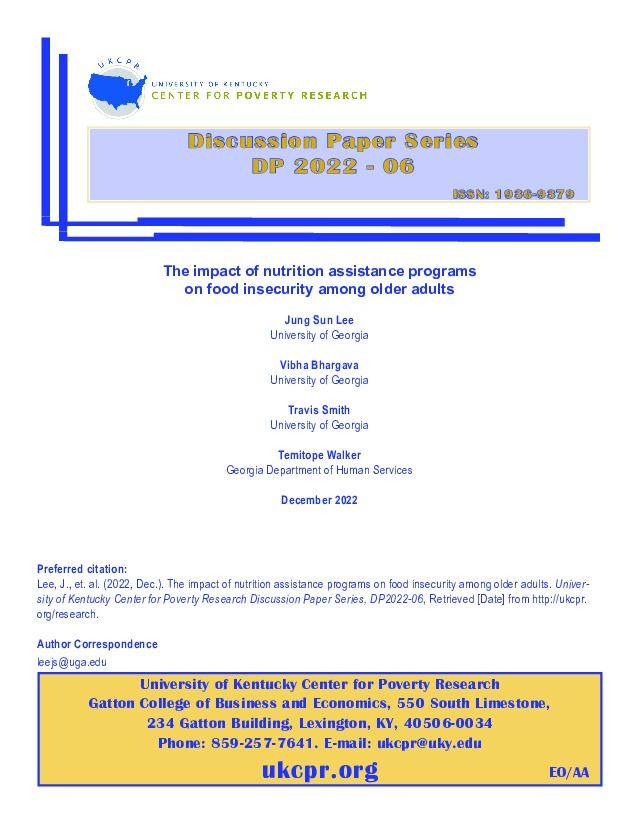Using administrative data from Georgia covering January 2018-August 2020, we estimated the effect of services provided through the Older Americans Act (OAA) and the Supplemental Nutrition Assistance Program (SNAP) on food insecurity among older Georgians. Our sample included those who received services prior to and during the COVID-19 pandemic. For the entire sample period (i.e., pre-COVID and during COVID), we found home-delivered meals and other OAA services reduced food insecurity by roughly 3% and 4%, respectively. The effect of SNAP on reducing food insecurity significantly increased from 2.1% (pre-COVID) to 4.7% (during COVID). While we find no effect of congregate meals on food insecurity in the pre-COVID period, the loss of “traditional” congregate meals in a social setting during COVID increased food insecurity by 7%.
Research
SeniorsPDF Thumbnail
